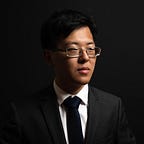Selfless
Remembering my grandmother’s story of sacrifice
A quick note: On Wednesday evening, my grandmother died after receiving years of care for Alzheimer’s disease. She was 86. I was told that she left peacefully, surrounded by family in Taiwan.
Below, you’ll find a short essay that I wrote in high school on her story. Thank you to Andrew Huang and Ashley Pham for helping to edit and review this on such short notice.
My family roamed the bustling streets of Taipei one cool summer morning in 2010, taking in the sights and sounds of urban life. The subtle, smoky scent of cooked meat lingered in the air as we navigated the capital, and we were surrounded by towering skyscrapers and flashing neon signs. A sea of yellow taxis and motorcycles crammed the streets while planes soared above us.
My grandmother held my hand as we walked. Her hair matched the ashen morning sky, but the rest of her appearance and personality overflowed with a colorful liveliness. Her warm brown eyes defined her soft, wrinkled face, and she was always quick to flash a smile.
In my few conversations with her, my grandmother always focused squarely on me and my future — choosing to keep details of her life obscure, while urging me to reach my full potential.
She went by many names: Biyin Bai, Bai Laoshi (“Teacher Bai”), grandmother, and mother. I only called her 阿嬤 (pronounced “ah mah”) and I knew embarrassingly little about her personal story of sacrifice that I have come to view as a source of inspiration. It was only when she was diagnosed with Alzheimer’s disease in 2014 that I began to actively learn about her past.
My grandmother was born in the industrial city of Taichung at a time when crises and poverty gripped Taiwan. Although her father had been a heavy drinker and her mother worked for scant wages making straw hats, she dreamed of attaining a good education. She labored away to garner the best grades and eventually qualified for a spot at one of the best public high schools in the country.
But when her father died, so did her dreams. As her family’s main source of income dried up, she opted to attend a tuition-free school and trained to become a teacher. Doing so, she thought, would keep the door of opportunity open for her four younger siblings.
In the 1950s, students in Taichung often held jobs in manufacturing, fishing or agriculture, choosing to work rather than furthering their education in order to support their families. Shortly after obtaining a teaching degree at the age of 19, my grandmother spent long mornings and afternoons biking around the city, urging them to give education a chance.
Forty years later, my grandmother had developed a reputation for excellence in teaching, even receiving recognition from Taiwan’s president. Thousands of elementary school students passed through her classrooms and she refused on principle to accept money for extra help.
My grandmother was also diligent in her family life, completing house chores day after day in her efforts to support three children and her parents-in-law. As I spoke to relatives that knew her best, every small story seemed to highlight her selflessness.
Combining motherly instincts with her experience as an educator, my grandmother always made sure she was the last to eat at every meal. When one of my uncles injured himself with a carving knife in a second grade art class, she scooped him up in a hurry and rushed to a nearby hospital. Only hours later did she realize that she had not worn any shoes. When I was born prematurely in 1998, she traveled alone to California to help care for me, even though she could not speak or read English.
The last time I saw my grandmother was in early 2015, when she made her second trip to the U.S. Her Alzheimer’s had progressed and she supported her thin, frail body with a cane. Most notably, her hair, once as gray as slate, was now very white, but her bright smile remained the same.
My parents asked my grandmother to say my name to test her failing memory, and she eyed me slowly. She blinked four times, then paused. “I don’t know,” she whispered.
My grandmother, retired, now lives in Taipei, surrounded by her many children and grandchildren — the fruits of her many years of labor. She sleeps little and constantly forgets simple dates and names, even where she is going when she takes her daily walks.
With her memory fading, she now firmly believes that she is once again a teacher, waking up every day in her quest to educate students from a distant time that I will never know.
